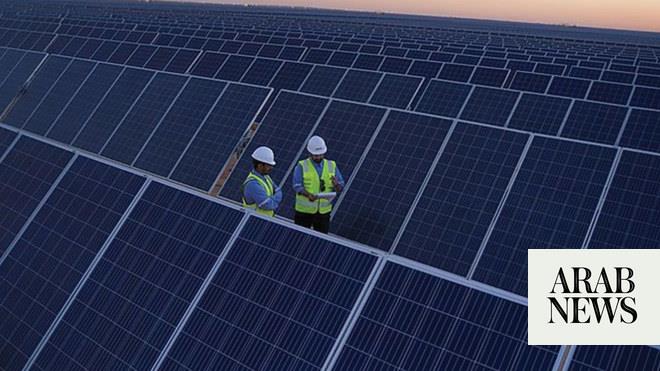
Decades ago, small island states were the first countries to call for a concerted international effort to address climate change. Highly vulnerable to extreme weather events and rises in sea levels, and heavily dependent on resource-based economies, they recognized early on that their survival could well depend on the international community’s willingness to take action.
At last, after many false starts and repeated delays, the 2015 Paris Agreement on climate change seemed finally to have set the world moving in the right direction.
The Trump administration’s decision to withdraw the US — historically the world’s largest greenhouse gas emitter — from the treaty just two years later once again cast doubt on the future of some of the world’s lowest-lying islands.
When President Joe Biden last month signed an executive order for the US to rejoin the Paris Agreement, small islands breathed a collective sigh of relief. Additional decisions by the new administration give cause for more optimism: Former Secretary of State John Kerry will serve as the Washington’s special envoy for climate change, and Brian Deese, who was instrumental in winning support for the Paris Agreement and a key player in the Obama’s administration’s financial crisis recovery plan, now heads the National Economic Council.
Biden also placed a moratorium on oil and gas drilling on federal land in the US and called on government agencies to cut subsidies for the fossil fuel industry where they can. “We can’t wait any longer” to address the climate crisis, he said. “We see with our own eyes. We know it in our own bones. It is time to act.”
These words mark a profound shift in the direction of the global compass on action to tackle climate change. But the experience of the past few years demonstrates the fragility of the international climate change regime. What does it all mean for island communities that are already struggling with climate effects?
Notoriously, the Paris Agreement only asks countries to take voluntary action to cut greenhouse gas emissions — what is known as “nationally determined commitments.” Such an approach was probably the only way to win support from more 190 signatories for such a complex diplomatic document. But gaining that support came at a cost: Most notably, the ease with which major polluters can leave the agreement.
I am not suggesting that a legally binding treaty is now necessary; it is better to have as many countries on board as possible. However, it probably means that we need to adapt our negotiations to reflect the realities of a voluntary system.
What if climate negotiations became a forum for countries to showcase their climate successes and share best practices? Without the threat of legal sanctions to enforce behavior, national pride and innovation is the only leverage we really have to motivate action.
It has taken far too long, but the tireless work of small islands on the international stage has helped bring us to the verge of a climate breakthrough.
Ahmed Sareer
Imagine if the climate change talks brought renewable power engineers, investors and climate policy experts together in a solutions-oriented approach, rather than the adversarial approach that has often defined the process over the decades.
Important progress has been made — it should be celebrated and those successes shared with the international community. We can only solve this problem together and that means amplifying our successes and learning from our missteps. The cost of wind and solar power continues to drop, for instance, and is now more competitive than fossil fuels in many markets.
Countries are about to spend an enormous amount of money to pull out of the current economic decline. Why not do so in a way that attacks the climate crisis, just as was done during the Great Recession?
Still, so much time has already passed that small islands are already struggling. Hurricanes, droughts and record floods continue to take a toll. So the new approach to climate must include what is called “loss and damage.” This is a kind of disaster insurance plan that helps highly vulnerable countries address the losses and damages from rising sea levels, supercharged storms, and other effects that now can no longer be avoided.
It has taken far too long, but the tireless work of small islands on the international stage has helped bring us to the verge of a climate breakthrough. And the rapid action to ratify the Paris Agreement brought it into force in record time.
The same is true for national advocacy, as we saw in the recent US elections. Activists on the ground need to continue to press their elected officials to follow through on the actions they have committed to. In a system of voluntary action on climate change, voters must be the final arbiters of accountability.
Like so many others, I celebrated the Biden administration’s new climate posture. And Washington’s re-engagement with the issue will help to build political momentum as we move toward the climate negotiations due to take place at the end of this year.
But lest we forget, a climate treaty that does what is necessary and can stand the test of time draws its strength from all of us, not only a single large country.
Ahmed Sareer was the ambassador/permanent representative of the Maldives to the UN from 2012 to 2017, and chairman of the Alliance of Small Island States from 2015 to 2017.
Disclaimer: Views expressed by writers in this section are their own and do not necessarily reflect Arab News" point-of-view










